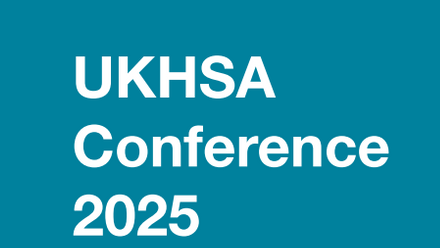Eight things we learned about commercialising medical research at Imperial's 'All You Can Innovate' 2024
University research often yields knowledge that can be used to create world-changing medicines and other technologies that enable us to lead longer and healthier lives. But to make the transition into the commercial world, researchers need to gain a whole new set of knowledge, skills and contacts.
Hundreds of Imperial academics and researchers mixed with industry professionals, investors, and seasoned academic innovators last Thursday at All You Can Innovate 2024 (AYCI), an event organised by Imperial Enterprise to provide expert insights into the process of forming a startup or working with a company to commercialise a technology.
Here are eight things we learned about commercialisation:
1. You need to be a polymath
"While the popular claim that there are more humans alive today than have ever died might be apocryphal, there are certainly a lot more scientists working now than there used to be", Simon Youlton, Director of Early Strategic Partnerships at Novartis, told AYCI. “It’s more competitive than it’s ever been. And all your peers are producing loads of data, too much to assimilate.” To cut through this, he said, requires multi-disciplinary expertise. “If you go back to the great and the good, like Mary Somerville and Robert Hooke, they were all polymaths … Things changed with time, as we went on to become experts in narrow areas; now things are changing again, and you need a network of people across wide disciplines to make innovation happen.”
2. Timing is everything
To create a commercial success, “timing is key” said Dr Leigh Brody, Investment Manager at investment firm Albion VC. “I learnt that the hard way,” she says, recounting her experience as a founder pitching to venture capital (VC) firms. “In 2012, I went around fundraising for a technology I developed during my PhD which was a nanoparticle that delivered RNA. At the end of one pitch, the VC asked me, 'What is smaller than a nanoparticle?’ and his answer was ‘VC interest in nanotechnology’.”
Another innovator for whom timing proved crucial was Professor Pantelis Georgiou in the Department of Electric and Electronic Engineering, who was already working on a lab-on-a-chip technology to test for infectious diseases when the COVID-19 pandemic struck. “We began discussions with Imperial Enterprise before the pandemic to spin out and support manufacturing of the diagnostics from the lab, and the pandemic really accelerated the process as a huge market was suddenly created,” he recounted. Since then the spinout, ProtonDx, has received a CE mark for COVID-19 and respiratory diagnostics and has used its technology to rapidly test athletes at the Olympics for a range of respiratory diseases.
3. You may need to be in it for the long haul
While a crisis such as the COVID-19 pandemic can concentrate minds, the journey from bench to bedside can nonetheless take decades, especially for a major new class of treatment. “You have to plan for 15 – 20 years of your career if you want to be successful,” said Professor Uta Griesenbach in the National Heart and Lung Institute, who has been working with colleagues in the UK Respiratory Gene Therapy Consortium (GTC) to develop a new treatment modality for Cystic Fibrosis since 2001, with support from Imperial Enterprise. After tackling challenges ranging from finding a suitable vector (“It’s much harder to get genes into the lungs than originally anticipated”) to scaling up, the team partnered with Boehringer Ingelheim and Oxford Biomedica in 2018 and is set to begin human trials this summer. She and collaborator Professor Eric Alton along with other members of the GTC have also recently formed spinout company AlveoGene to apply their gene therapy platform to the treatment of other lung conditions.
4. Finding a partner or investor requires desk research
To find the best corporate partner or investor to take your technology forward, it pays to do your research. “Every company is different,” said Novartis’s Mr Youlton. “You have to understand what products they have, what their interests are … [and] make a pitch that is unique to that company.” Dr Brody of Albion VC said this also holds true for investors: “You have to understand the profile of the funds you’re speaking to – there are a lot out there, and they have different investing strategies. Before you approach one, consider what stages they invest in, geography, cheque size you require, and where the fund is in their own deployment lifecycle, as funds have differing remits and risk appetites.”
5. You need a business expert you trust on board
“You start with an academic discovery and, at some point, you need to undertake translational work to validate the concept, file some patents, and understand if there is commercial potential – because there might not be,” said serial founder Dr Mike Romanos, Associate Dean for Enterprise in the Faculty of Medicine, on founding a spinout company. “You cannot raise money unless you have a specific plan – for example, ‘we’re going to take it into these clinical trials, for these treatments, and this is how much it will cost’. Your bond of trust with your entrepreneur is essential; an academic cannot usually do this bit on their own.”
6. Universities aren't greedy
There was once a perception that universities stifle the success of their spinout companies by demanding an unreasonably high share of the founding equity, leaving too little left over to incentivise founders and early investors. Imperial has worked with academics, stakeholders, and other top universities to determine best practice on spinout terms including equity, culminating in a more efficient spinout process and attractive equity terms for founders. “From my experience at Cancer Research UK, in the early days UK spinouts were a novelty and when we formed them there were just one or two that made all the money,” said Mr Youlton. “At first, vice-chancellors and universities thought they were a quick win, but now everyone is more pragmatic. No one wants to squander things by taking too much money too early.”
7. You must avoid disclosing IP before it's protected
While sharing research through presentations, publications, and even social media is part of the job of an academic, at Imperial it’s vital to talk to your Industry Partnerships and Commercialisation team before publicly disclosing intellectual property. “We protect early, because once you reveal anything by publishing or tweeting – please don’t – you can’t patent,” said Dr Vjera Magdalenic-Moussavi, Director of Industry Partnerships and Commercialisation in the Faculty of Medicine. You should also think carefully about what you reveal in early discussions with potential corporate partners. Mr Youlton said: “You’ve got to understand the difference between confidential and non-confidential data. You need to give the company enough to take the discussion further, but don’t give away the crown jewels.”
8. Imperial researchers can access a lot of support
The Enterprise Lab, recently described by the Guardian as Imperial’s “crown jewel”, originally focused on students, but now also offers a range of entrepreneurship support to research staff, including training, mentoring, and a new service dedicated to helping startups find investment. Other Imperial resources include the White City Incubator and prototyping community the Advanced Hackspace. Translational researchers may be interested in Discover-NOW, hosted by Imperial College Health Partners, which offers access to a huge library of patient data, the NIHR Imperial Biomedical Research Centre, which provides infrastructure for translational research, and the NIHR HealthTech Research Centre, which helps model the impact of health technologies.





